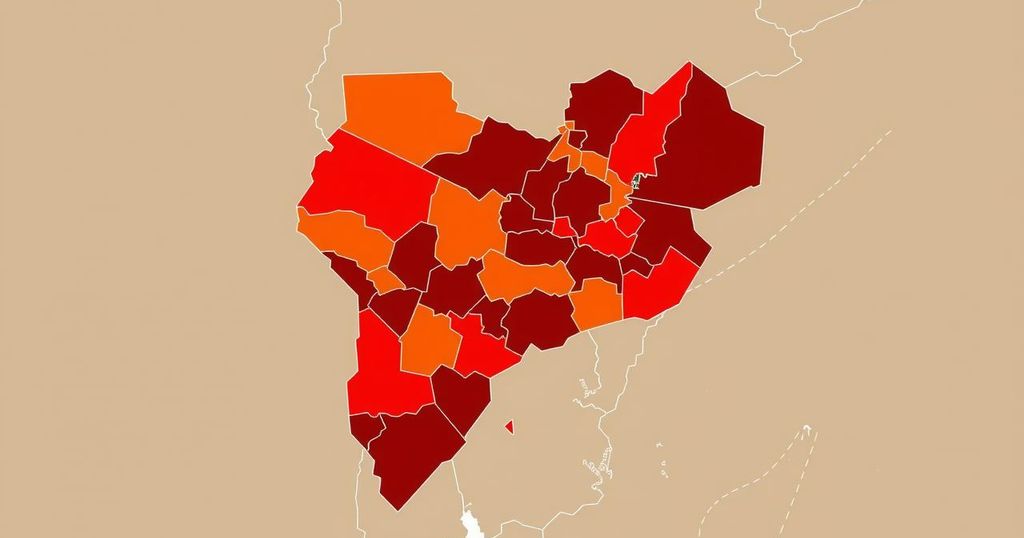South Sudan is facing an escalation of violence, driven by internal divisions and ongoing tensions between President Salva Kiir and Vice President Riek Machar, exacerbated by the war in Sudan. The fragile peace established in 2018 is now threatened, raising fears of widespread conflict as the country grapples with deep corruption and economic challenges.
South Sudan is currently experiencing an upsurge in violence, particularly within its Upper Nile state, primarily influenced by ongoing unrest from the war in neighboring Sudan. The delicate peace established by the 2018 agreement is now jeopardized due to internal divisions and rampant corruption affecting the nation.
The recent tensions are primarily driven by escalating conflicts between President Salva Kiir and Vice President Riek Machar, who, once former allies, have transformed into rivals. Following clashes in Upper Nile, several individuals associated with Machar, including the oil minister, have been detained by the National Security Service amid rising hostilities.
Since mid-February, conflicts have erupted in the Upper Nile region between the South Sudan People’s Defense Forces (SSPDF) and the youth-based armed group known as the “White Army,” which aligns with Machar. A recent attempt by a U.N. helicopter to rescue SSPDF soldiers resulted in gunfire, tragically leading to the deaths of 28 individuals, and has contributed to significant displacements and injuries in the area.
The revival of violence poses questions regarding the durability of the 2018 peace agreement, which concluded a devastating civil war that started in 2013, claiming approximately 400,000 lives and displacing 4 million South Sudanese. This fragile stability is now further threatened by the civil war in Sudan that escalated in April 2023, impacting South Sudan’s economic conditions negatively.
The International Crisis Group highlights that damage to a key pipeline, critical for oil exports near Khartoum, has severely affected South Sudan’s economy, stripping President Kiir of essential resources required to maintain his influence. As Sudan’s military continues to exploit South Sudan’s ethnic divisions, concerns mount regarding renewed tensions between the Dinka and Nuer communities.
The risk of large-scale conflict in South Sudan is amplified by its fragile governance, widespread corruption, and dependence on oil amidst considerable poverty. Multilateral organizations, including Human Rights Watch, warn of the potential for “widespread violence” due to rising tensions. A report from the U.N. Commission on Human Rights recently accused the nation’s elites of exacerbating instability, noting that “the leadership continues its violent power struggles across the country.”
As public frustration with the prolonged rule of Kiir and Machar grows, coupled with a lack of essential services from the government, South Sudan faces an increasing likelihood of collapse. Such a scenario could transform the country into a refuge for armed groups and illicit activities, cautioned the International Crisis Group.
In summary, South Sudan is undergoing severe unrest characterized by increased violence and political instability, deeply intertwined with the ongoing conflict in Sudan. The rivalry between President Salva Kiir and Vice President Riek Machar heightens existing tensions, risking a return to widespread conflict. With vast implications for stability and governance, the current environment underscores a critical need for intervention and support to avert potential disaster in the world’s youngest nation.
Original Source: international.la-croix.com




